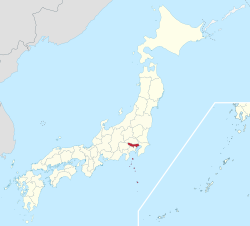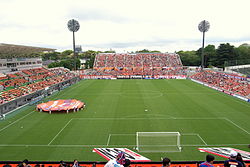 Football at the 1964 Olympics on a stamp of Japan | |
| Tournament details | |
|---|---|
| Host country | Japan |
| Dates | 11–23 October 1964 |
| Teams | 14 (from 5 confederations) |
| Venue(s) | 8 (in 4 host cities) |
| Final positions | |
| Champions | |
| Runners-up | |
| Third place | |
| Fourth place | |
| Tournament statistics | |
| Matches played | 29 |
| Goals scored | 123 (4.24 per match) |
| Top scorer(s) | |
← 1960 1968 → | |
The football competition at the 1964 Summer Olympics started on 11 October and ended on 23 October. Only one event, the men's tournament, was contested. The tournament features 14 men's national teams from six continental confederations. The 14 teams are drawn into two groups of four and two groups of three and each group plays a round-robin tournament. At the end of the group stage, the top two teams advanced to the knockout stage, beginning with the quarter-finals and culminating with the gold medal match at the Olympic Stadium on 23 October 1964. There was also three consolation matches played by losing quarter-finalists. The winner of these matches placed fifth in the tournament. [1]







